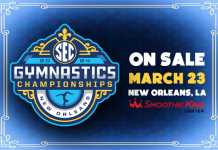The sober curious community is growing across the country. Places like Austin, New York, Chicago and California have sober bars. New Orleans even opened its first sober bar – Dreamhouse Lounge – in 2022. The sober curious movement has gained popularity since the book Sober Curious was published in 2018. Research shows that Millennials and Gen x are drinking less than Boomer populations. 64% of Gen Z drink less due to health concerns, hangovers, mental health struggles, and other negative results of drinking alcohol. More and more folks are either in recovery, or they are joining the sober movement for health reasons.
A More Inclusive New Orleans
New Orleans was once named one of the friendliest cities in the US. This is because NOLA people greet you, they smile at you, they ask you about your family, and they hug you. Our city is known for its musical heritage and its friendly locals, so it just makes sense that we are now providing more spaces for our beloved sober community. They are our moms, dads, grandparents, sisters, brothers, nephews, and our children.
Jazz Fest and Sobriety
Other festivals around the country have started to create sober tents and spaces. One Million Strong is an initiative that aims to eventually help 1 million people access sober spaces at music events across the country. They create physical structures where music lovers can gather in a comfortable and enjoyable alcohol-free space.
New Orleans Jazz Fest is partnering with 1 Million Strong to have a free, supportive sober, wellness space where you can socialize and enjoy the festivities. If you are sober and go to Jazz Fest, head over to the sober support tent. It is a safe supportive tent for sober folks and their allies. Come cool down and have a mocktail.
According to Bill Taylor of the Phoenix: “We want anybody to come by and visit with us. The goal of the campaign is to shift the culture and paradigm of how recovery and sobriety is talked about and supported in our country … so that is going to require people that are allies and supporters or people who have loved ones in recovery. It takes a village. The music culture is traditionally affiliated with a party drinking atmosphere. We are looking to shift that paradigm.”















